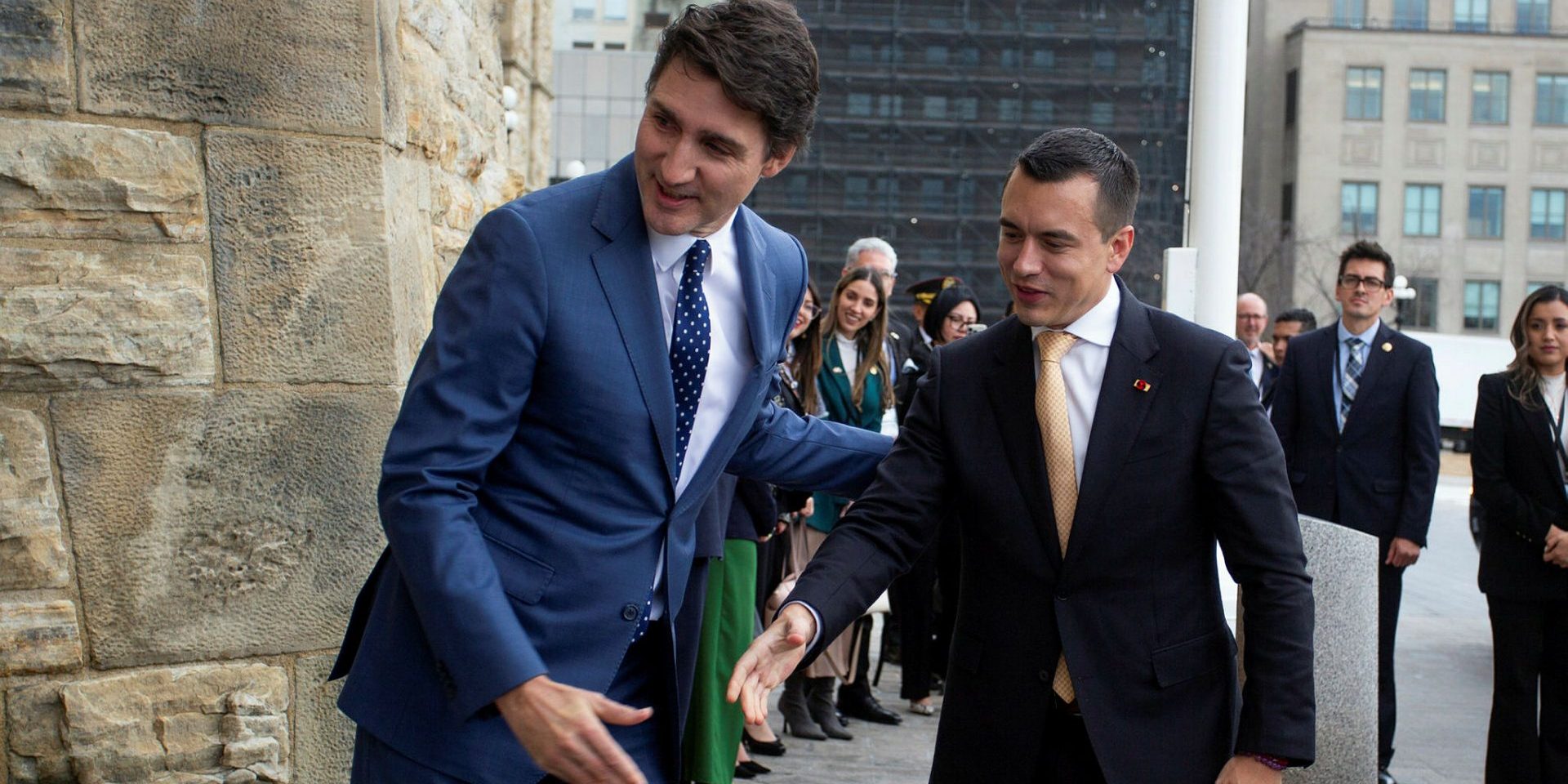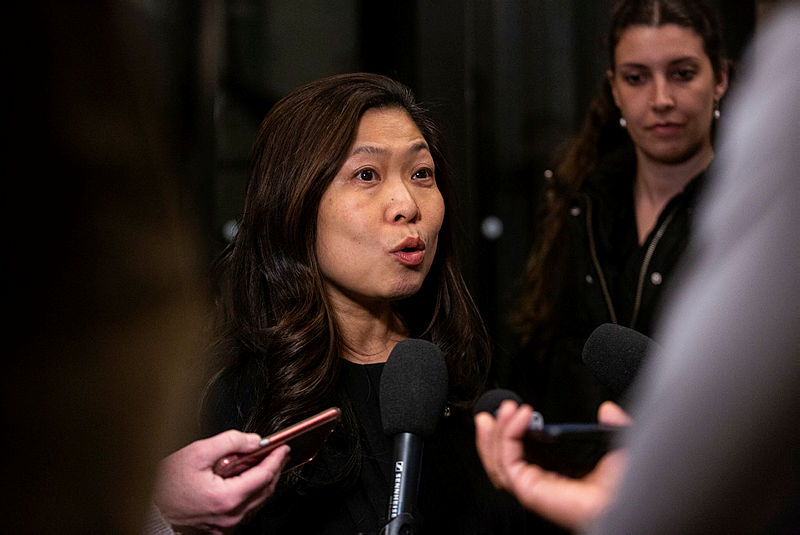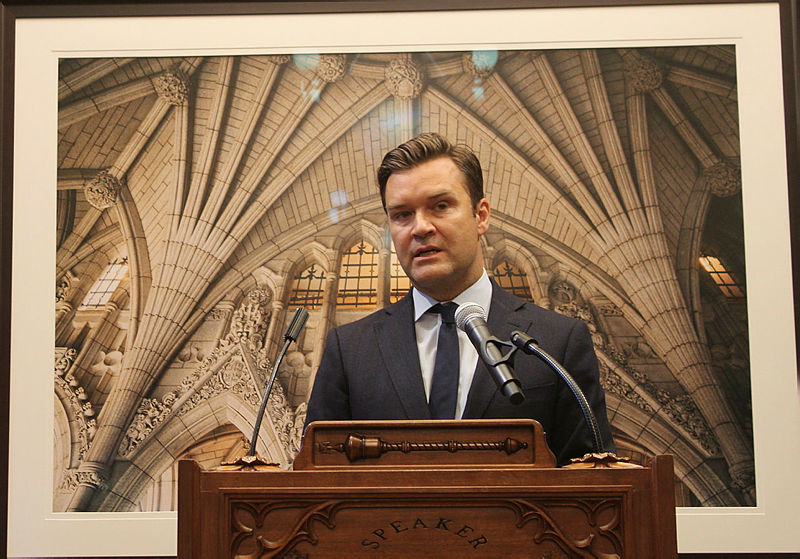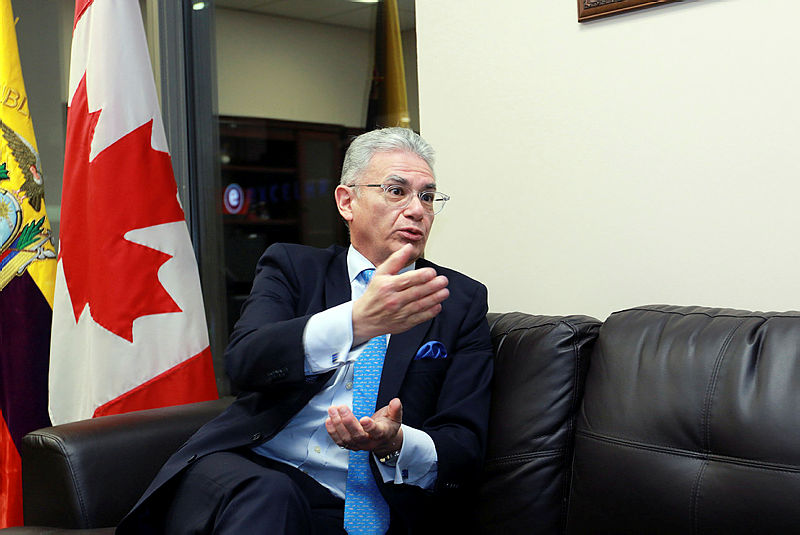Opposition to a Canada-Ecuador trade deal mounts before formal talks have chance to kick off

With the start of Canada-Ecuador trade negotiations on the horizon, opposition to a potential deal is already building in the House of Commons, complicating any eventual parliamentary agreement.
International Trade Minister Mary Ng (Markham–Thornhill, Ont.) tabled a 90-day notice to enter into trade negotiations with Ecuador on Dec. 13, 2023, which would mean that talks could have officially begun on March 12. But the required tabling of negotiating objectives, which must come 30 days ahead of discussions starting, has yet to happen.
While the start of negotiations is delayed, the House Committee on International Trade is undertaking a study on free trade negotiations between the two nations. During three committee meetings last month, Conservative MPs have raised questions about any carbon tax provisions being embedded in a final agreement. A similar concern led to the party voting against a modernized trade pact with Ukraine, which included non-binding language to “promote carbon pricing” and to “address impacts and risks associated with climate change through adaptation measures.”
Since the Trudeau government came to power in 2015, the Liberals and Conservatives have been in lockstep, voting in favour of a series of trade agreements including Canada’s trade pact with the European Union, its Pacific Rim trade deal, the new North American trade agreement, and the Canada-United Kingdom transitional trade accord. That consensus broke when the Tories opposed the updated Ukraine trade deal, falsely citing that it would impose a carbon tax.
At the same time, Bloc Québécois and NDP MPs have voiced opposition to investor protections. The two parties have historically opposed investor–state dispute settlement (ISDS) provisions in trade deals, but backed the latest Ukraine agreement despite their inclusion. The ISDS regime allows foreign corporations to pursue arbitration against a contracting country, instead of going through domestic courts, if a change in law affects their investment.

The Liberal government will need the support of at least one other party to implement a potential new trade pact. While trade negotiations are the purview of the executive branch, an implementation bill will still need parliamentary approval to amend domestic law to match provisions agreed to in a trade pact.
Trade consultant Eric Miller, president of Rideau Potomac Strategy Group, said in their opposition to language on carbon pricing for the Conservatives and to ISDS for the Bloc Québécois and NDP, the opposition parties have laid out the parameters they want to see respected to gain their support.
“Clearly the numbers suggest that there needs to be some compromise to be made on this,” he said.
Miller said he understands why Canada would want an ISDS provision in a deal with Ecuador given potential for political change, as well as noting that the government views climate change and carbon policy as a central part of its relationship with Ecuador.
“But at some point, something will have to give, or the [Canadian] government could face the embarrassing prospect of not having the votes to get an agreement through if they bring back something that is not fully reflective of what [the opposition] would like to see,” he said.
Global Affairs Canada (GAC) trade official Doug Forsyth said nothing is off the table when asked by Conservative MP Tony Baldinelli (Niagara Falls, Ont.) if a carbon price would be included in a deal with Ecuador.
“As part of our discussions with Ecuador, we are looking at a comprehensive environment chapter. Whether Ecuador is interested in discussions about that, I’m not aware,” Forsyth said during a House Trade Committee meeting on Feb. 15.
Conservative MP Matt Jeneroux (Edmonton Riverbend, Alta.) also grilled GAC official Dean Foster on whether the inclusion of a provision on carbon pricing has been considered as part of the future negotiations with Ecuador.
“Discussions are ongoing about what would be included. I will err towards the side of yes, it has been discussed and considered, and we’re looking forward to hearing feedback from this committee as a part of final decision-making purposes,” Foster told the Trade Committee on Feb. 29.
Foster said that Ecuador is “very keen” for environmental provisions to be in a trade pact with Canada.
“But I don’t think we touched on carbon pricing specifically in the exploratory discussions,” he added.
Ecuadorian President Daniel Noboa visited Ottawa on March 5, holding meetings with Prime Minister Justin Trudeau (Papineau, Que.) before heading to Toronto for a mining conference.

Bloc Québécois MP Simon-Pierre Savard-Tremblay (Saint-Hyacinthe–Bagot, Que.) and NDP MP Richard Cannings (South Okanagan–West Kootenay, B.C.), their parties’ respective trade critics, both told The Hill Times they are opposed to the inclusion of ISDS provisions in trade deals, especially in the case of Ecuador, but would wait until they saw a final agreement before deciding if they would oppose a potential implementational bill.
The Ecuadorian constitution sets out that international treaties cannot be entered into where sovereign jurisdiction is yielded to international arbitration bodies. The country is set to hold a referendum on April 21 to reform its constitution.
“It seems a bit hypocritical of Canada to say, ‘We want to have a modern treaty that has chapters on human rights, and labour rights, and environmental activities,’ and at the same time bringing an investor-state dispute mechanism between Ecuador and Canada that largely will be used to protect Canadian mining investments that have caused some serious concern within Ecuador,” Cannings said.
He said that he moved the motion for the Trade Committee to study the coming Canada-Ecuador trade negotiations to ensure that Canada’s negotiators know that concern for including ISDS provisions in a final agreement is an issue that Canadians feel strongly about.
“We have an awkward situation where the previous governments in Ecuador have been very much against investor-state dispute mechanisms, but now we have a new government that is [in favour], and the political situation is somewhat turbulent right now. A cynic might say that Canada is trying to take advantage of that situation,” Cannings said. “I just think that maybe now is not the best time to pursue these negotiations.”
Ecuador has been mired in a state of civil unrest amid an ongoing crackdown on gangs, which included the imposition of martial law.
Savard-Tremblay called the current moment the “wrong time” to embark on trade talks with Ecuador.
“We don’t want ISDS, of course. We think it’s a bad system, [and] it’s an anti-democratic system,” he said. “It’s a deal that will mostly be in favour of the mining industry.”
On Feb. 15, Forsyth told the Trade Committee that an investment chapter with enforceability through ISDS is a “key interest for Canadian industry stakeholders.” He noted that Canada is the largest foreign investor in Ecuador with $2.6-billion steeped mostly in the mining industry.
He said that an “ambitious” trade pact with Ecuador could increase Canada’s GDP by nearly $112-million by 2030.
Ecuadorian Ambassador to Canada Carlos Játiva told The Hill Times last year that his country would support the inclusion of ISDS provisions in a trade pact with Canada, calling them “part and parcel” of an agreement.
Savard-Tremblay said including ISDS provision would be “unacceptable,” but noted that with the modernized Ukraine trade pact, he voted against the ISDS provision, while voting in favour of the deal itself.
“Because there were many good things in the deal,” he said. “But now, will there be really good things with the deal with Ecuador? Probably, there will be some, but then we’ll see if the negative parts outnumber the positive parts.”
With the government needing the support of at least one opposition party to implement a potential agreement, Savard-Tremblay said his party “could have some leverage.”

International trade lawyer Lawrence Herman called the arguments of both the Conservatives, and the Bloc Québécois and NDP “nonsensical.”
He said that it is “absolutely astonishing” that the Conservatives would oppose a trade pact due to an indirect reference to carbon pricing.
“The language is broad and abstract, and it doesn’t say, ‘you will apply a carbon tax.’ It just makes reference to the carbon price as one method of moving towards decarbonization,” he said. “Frankly, the Conservative position has no merit. It’s untenable, but they’re doing it for political grandstanding.”
Herman added that it would make sense for Canada to have an ISDS provision with Ecuador, remarking that it protects investments in jurisdictions where the rule of law “isn’t safe or secure.”
nmoss@hilltimes.com
The Hill Times






 LICENSING
LICENSING PODCAST
PODCAST ALERTS
ALERTS













